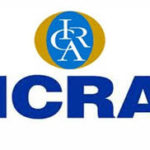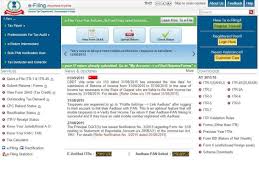
From April 1, chartered accountants (CAs), merchant bankers and valuers can’t escape responsibility for filing of incorrect information in certificates or reports attached with income tax returns of assessees.

From April 1, chartered accountants (CAs), merchant bankers and valuers can’t escape responsibility for filing of incorrect information in certificates or reports attached with income tax returns of assessees.
 The Budget has proposed imposing a fine for not filing income tax returns within the due date. For income below Rs.5 lakh, filing returns after July will attract a fine of R1,000, while for income above Rs. 5 lakh it will be R5,000, if it is filed after the due date but on or before December 31 of the assessment year. It has also proposed a fee of R10,000 in any other case.
The Budget has proposed imposing a fine for not filing income tax returns within the due date. For income below Rs.5 lakh, filing returns after July will attract a fine of R1,000, while for income above Rs. 5 lakh it will be R5,000, if it is filed after the due date but on or before December 31 of the assessment year. It has also proposed a fee of R10,000 in any other case.
Since it is a fee, it has to be paid while filing tax returns along with any tax on any income and interest. “It is proposed to make consequential amendment in Section 140A to include that in case of delay in furnishing of return of income, along with the tax and interest payable, fee for delay in furnishing of return of income shall also be payable,” the Finance Bill 2017 underlines.
At a post-Budget event organised by the Institute of Chartered Accountants of India, Hasmukh Adhia, revenue secretary said that those who have an income of Rs. 5 lakh and above and file returns after July but till December will face a fine of R5,000. “This fine will be raised to R10,000 if the return is filled after December,” he said.
Time limit for filing revised return reduced
Under Section 139(5) of the Income Tax Act, an assessee can file revised return within two years from the end of the relevant fiscal year or before the completion of assessment by tax authorities, whichever is earlier. The Finance Bill proposes to reduce the time limit for filing such revised return to one year from the end of relevant fiscal year or before the completion of the assessment by tax authorities, whichever is earlier. This amendment shall be effective from fiscal year 2017-18.
A revised return can be filed if the assessee has filed the return within the due date. For filing the revised return, one has to enter the acknowledgement number and the date of filing of the original return in the revised form.
The Budget has also proposed to reduce the time limit for completion of assessment under Section 153 of the I-T Act. In assessment year 2018-19, it will be 18 months from the end of the assessment year. From assessment year 2019-20, it will be 12 months from the end of the assessment year. It has also reduced the time limit for completion of re-assessment. In respect of notices served under Section 148 of the I-T Act on or after April 1, 2019, the time limit for completion of assessment or re-assessment will be 12 months from the end of the financial year in which the notice is served.
Interest on refund
Under Section 244(A) of the I-T Act, an assessee is entitled to receive interest on refund because of excess payment of advance tax, tax deducted or collected at source. The assessee will, in addition to the refund amount, will receive simple interest on such refund at the rate of 1.5% for every month or part of a month from the date on which claim for refund is made in the returns or in case of an order passed in appeal, from the date on which the tax is paid to the date on which refund is granted.
 India is expected to attract moderate FII inflows of $15-$20 billion in 2018, with headwinds such as the muted outlook for corporate earnings and continued compression in debt spreads relative to advanced economies, rating agency ICRA said in a report on Tuesday.
India is expected to attract moderate FII inflows of $15-$20 billion in 2018, with headwinds such as the muted outlook for corporate earnings and continued compression in debt spreads relative to advanced economies, rating agency ICRA said in a report on Tuesday.
“With the muted outlook for corporate earnings and emerging sectoral concerns regarding Indian software and pharmaceuticals exports to the US, the net FII equity inflows are likely to be restricted below $5 and $10 billion respectively in FY17 (2016-17) and FY18 (2017-18), in our view,” said ICRA Senior Vice President and Group Head-Financial Sector Ratings, Karthik Srinivasan.
The agency expects aggregate FII debt outflows in FY17 of $6-$8 billion, followed by aggregate inflows of $5-$10 billion during FY18.
“Indian bond yields are unlikely to ease significantly below current levels, given the limited further monetary easing expected from the Reserve Bank of India.
“Moreover, the supply of net long term borrowings of the government is likely to increase in FY2018 from Rs 4.1 trillion in FY2017, as the central government is likely to budget a fiscal deficit range between 3 and 3.5 per cent of the GDP,” he said.
The Indian markets had witnessed record FII outflows of $11.3 billion during Q3 (third quarter) FY17 on the back of a combination of international and domestic factors, including the risk-off sentiment triggered by the outcome of the US presidential election in November 2016 and the tightening of monetary policy by the US Federal Reserve in December 2016.
 In a bid to clamp down on unaccounted money funnelled into bank accounts post demonetization, the tax department has scrutinised and matched as many as 1-crore accounts and asked 18 lakh people to explain the source of fund.
In a bid to clamp down on unaccounted money funnelled into bank accounts post demonetization, the tax department has scrutinised and matched as many as 1-crore accounts and asked 18 lakh people to explain the source of fund.
The tax department has run big data analytics through more than 1-crore accounts in its data bank and done matching with the taxpayer profile of the holder, a top source said.
As per I-T records, there are 3.65 crore individuals who filed income tax returns. Besides, there are over 7 lakh companies, 9.40 lakh Hindu Undivided Families (HUFs) and 9.18 lakh firms who filed ITRs during Assessment Year 2014-15.
Also, over 25 crore zero-balance Jan Dhan accounts were opened as part of the financial inclusion drive.
Sources said I-T department is scrutinising all categories of accounts and will send out more SMS/emails for suspicious deposits under ‘Operation Clean Money’.
“We have initially matched 1-crore accounts with the profile in our database and identified 18 lakh people with suspicious deposits of over Rs 5 lakh. We will expand the scope of data analytics further and match the profiles with our data base,” the source told.
In order to reduce harassment of taxpayers, the revenue department has mandated only officers in the rank of Assistant Commissioners and above to issue notices in case of unsatisfactory response received about bank deposits post demonetisation.
Under Operation Clean Money launched by the Income Tax department on January 31, the department has sent SMS and emails to 18 lakh people who have made suspicious deposits of Rs 5 lakh and above between November 10 and December 30.
“If the department is convinced with the reply of the assessee, the case will be closed and that will be communicated by SMS and email. But, in case of unsatisfactory reply, the decision to issue notice will be taken by Assistant Commissioner and Commissioner rank officers,” the source said.
The department has used data analytics for comparison of deposits made after the November 8 decision to scrap high-value banknotes with information in its database to identify tax-payers whose cash transactions do not appear to be in line with the tax-paying profile.
It has also asked taxpayers to e-verify the deposits they made in their accounts post demonetisation and respond to queries of any mismatch on the tax e-filing portal.
The source further said people who have received queries from the tax department about their deposits while replying in the e-filing website can also offer their remarks if it was their cash in hand.
“If the cash in hand is as per the balance sheet, no questions will be asked and the case would be closed. We have put enough safeguard to ensure that there is no harassment to tax-payers,” the source added.
 India has revised 40 treaties for avoidance of double taxation so that the information exchanged with partner nations on tax matters can also be utilised for other purposes including criminal proceedings, Parliament was informed today.
India has revised 40 treaties for avoidance of double taxation so that the information exchanged with partner nations on tax matters can also be utilised for other purposes including criminal proceedings, Parliament was informed today.
“Treaty partner countries have been requested to modify the tax treaties, so as to explicitly include provisions that will enable information exchanged for tax purposes to be utilised for other purposes, including criminal proceedings in non-tax matters,” Minister of State for Finance Santosh Kumar Gangwar said in a written reply to Rajya Sabha.
“40 treaties for avoidance of double taxation have been revised accordingly,” he said.
In addition, Gangwar said, India has signed “the Multilateral Convention on Mutual Administrative Assistance in Tax Matters, which also similarly facilitates exchange of information”.
These developments enable use of such information by non-tax agencies, subject to agreement by the Competent Authorities of the Requested Contracting State, he said.
Replying to a separate question, Gangwar said the Enforcement Directorate has provisionally attached assets of worth Rs 9,298 crore in 2016.
The minister said that as per estimate over 2,000 tonnes of gold is held by household, trusts and various institutions in India.
Source: http://www.freepressjournal.in//the-govt-has-revised-40-tax-treaties-for-information/1012899

With a view to expedite tax assessments, the income tax department proposes to make it mandatory for tax payers to file I-T returns as well as revised returns by March end of the assessment year (AY).
The department, in the memorandum to Finance Bill 2017, has also proposed a fee for delayed filing of income tax returns. In case of people whose total income does not exceed Rs 5 lakh, Rs 1,000 fee would be charged.
If the income exceeds Rs 5 lakh, a fee of Rs 5,000 shall be payable, if the return is filed after July but on or before December 31 of the Assessment Year (AY). A fee of Rs 10,000 shall be payable if ITR is filed after December.
“In order to expedite assessments of the Department, it is critical that the returns for an assessment year also freeze by the end of the assessment year. It is hence proposed to amend the provisions of sub-section (5) of section 139 to provide that the time for the furnishing of revised return shall be available up to the end of the relevant assessment year or before the completion of the assessment, whichever is earlier,” said the memorandum to the Finance Bill 2017.
This effectively means that people filing Income Tax returns have to file it with the department by March end of the assessment year i.E return for fiscal 2017-18 has to be filed by March 2019.
CBDT Chairperson Sushil Chandra said: “Today we have 1 crore people below Rs 2.5 lakh income filing tax returns. So if they are filing ITR, we want them to file returns on time. So now timely filing of ITR is mandatory.”
So far assesses were permitted to file delayed income tax returns one year after the completion of the assessment year.
 President Donald Trump vowed to end business as usual in Washington. Global companies are now learning just what that means.
President Donald Trump vowed to end business as usual in Washington. Global companies are now learning just what that means.